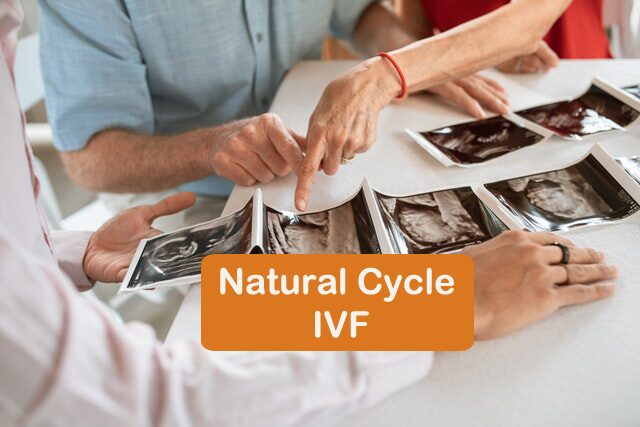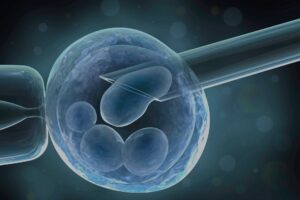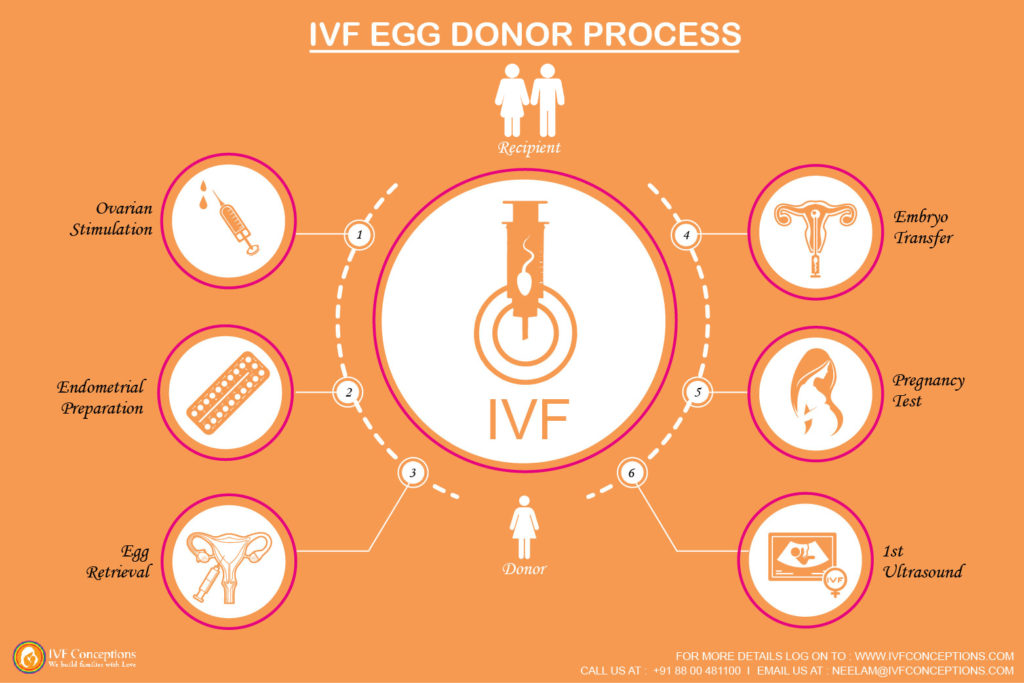A Beginner’s Guide to Natural Cycle IVF: What You Need to Know


Welcome to the world of Natural IVF! This innovative approach to fertility treatment focuses on using the body’s natural menstrual cycle to retrieve a single egg and achieve a pregnancy. Unlike traditional IVF, Natural IVF avoids the use of fertility medications, making it a more gentle and less invasive option.
In this blog, we will explore the definition, purpose, and benefits of Natural Cycle IVF, as well as the steps involved in the procedure. So, let’s dive in and learn more about this exciting fertility treatment option!
Begin your surrogacy journey with IVF Conceptions today!
Mobile: +91-8800481100 ( WhatsApp, Line, Viber)
Email: neelam@ivfconceptions.com
Web: www.completesurrogacy.com

 Natural Cycle IVF: Definition and Purpose
Natural Cycle IVF: Definition and Purpose
Natural Cycle IVF is a fertility treatment that aims to retrieve a single egg during a woman’s natural menstrual cycle.
Unlike conventional IVF, it does not use fertility medications to stimulate multiple egg production.
The purpose of Natural Cycle IVF is to provide a more gentle and less invasive option for women who prefer a more natural approach to fertility treatment.
This procedure honors the body’s natural rhythms and can be particularly beneficial for women with a normal or near-normal ovarian reserve.
Comparing Natural Cycle IVF to Conventional IVF
Natural IVF differs from conventional IVF in several key ways. Unlike conventional IVF, Natural Cycle IVF uses a woman’s natural menstrual cycle without the use of fertility medications. This makes it a more gentle and cost-effective approach.
However, it’s important to note that conventional IVF may have higher success rates due to the ability to retrieve multiple eggs. Ultimately, the choice between the two methods depends on individual circumstances, preferences, and medical advice.
Benefits and Limitations of Natural Cycle IVF
Natural Cycle IVF offers several benefits for women who prefer a more natural approach to fertility treatment. Some of these benefits include a lower cost compared to conventional IVF, as it does not require expensive fertility medications.
Additionally, it is a less invasive procedure and can be completed in a shorter timeframe.
However, Natural Cycle IVF also has limitations, such as a lower chance of success compared to conventional IVF and the possibility of not retrieving any eggs in some cycles.
It’s important to discuss these factors with your fertility specialist to determine if Natural Cycle IVF is the right option for you.
Preparing for Natural Cycle IVF

 Preparing for Natural Cycle IVF requires a comprehensive evaluation of your fertility and hormone levels.
Preparing for Natural Cycle IVF requires a comprehensive evaluation of your fertility and hormone levels.
Your fertility specialist will conduct tests to assess your ovarian reserve and to determine if you are suitable for Natural Cycle IVF.
Understanding your menstrual cycle and identifying the natural window for egg retrieval is crucial.
Your doctor will provide guidance on how to track your menstrual cycle accurately to optimize the timing of the procedure.
Evaluating Fertility and Hormone Levels
When preparing for Natural Cycle IVF, your fertility specialist will evaluate your fertility and hormone levels to determine if you’re a suitable candidate. This involves conducting tests to assess your ovarian reserve and hormone levels.
The tests may include blood work to measure hormone levels, an ultrasound to assess the ovaries, and possibly a hysterosalpingogram to check the fallopian tubes.
The results of these evaluations will help your doctor determine the best course of action for your Natural Cycle IVF treatment.
Understanding the Menstrual Cycle and Identifying the Natural Window
Understanding your menstrual cycle is crucial when undergoing Natural Cycle IVF. The menstrual cycle typically lasts 28 days and is divided into three phases: follicular, ovulatory, and luteal.
The natural window refers to the optimal time for fertilization, which occurs during the ovulatory phase.
By tracking your menstrual cycle and monitoring ovulation signs such as changes in basal body temperature, cervical mucus, and ovulation predictor kits, you can identify your natural window and plan for the egg retrieval process during Natural Cycle IVF.
More resources:
Things to know before going for IVF
Tips for Overcoming Failed IVF Cycles and Finding Hope
Top 3 IVF Success Rate Calculators Tools
10 Tips For Successful IVF For the First Time
IVF Process- What Parents Should Know For High IVF Sucess Rate.
IVF with Egg Donation is Made Easy and Affordable
Natural Cycle IVF Procedure
The Natural Cycle IVF procedure involves monitoring the development of a single egg during your natural menstrual cycle. Your doctor will monitor the growth of the egg using ultrasounds and hormone tests.
Once the egg is mature, it will be retrieved using a minimally invasive procedure. After retrieval, the egg will be fertilized in the lab and a resulting embryo will be transferred back into your uterus. This procedure is much less invasive than traditional IVF and typically requires fewer medications.
Monitoring Follicle Development and Hormone Levels
During the Natural Cycle IVF procedure, your doctor will closely monitor the development of your follicles and hormone levels. This is done through regular ultrasounds and hormone tests to determine the optimal time for egg retrieval. The goal is to ensure that the egg is mature and ready for fertilization. Your doctor will provide guidance throughout this process and make any necessary adjustments to optimize your chances of success.
Retrieving the Single Egg, Fertilization, and Embryo Transfer
- Retrieving the Single Egg: Once your follicle is mature, your doctor will schedule the egg retrieval procedure. This is a minimally invasive procedure where a thin needle is guided into the follicle to retrieve the egg. The procedure is typically done under sedation to ensure your comfort. The egg is then immediately taken to the laboratory for fertilization.
- Fertilization: In the laboratory, the mature egg is combined with sperm to facilitate fertilization. This can be done through conventional IVF or through intracytoplasmic sperm injection (ICSI), depending on your specific needs. The fertilized egg, now called an embryo, will be monitored for further development.
- Embryo Transfer: After a few days of development, the embryo is transferred into your uterus. This is a relatively quick and painless procedure that does not require anesthesia. Your doctor will use a thin catheter to transfer the embryo. Following the transfer, you may be instructed to rest for a short period of time to optimize the chances of implantation.
Remember, the success of Natural Cycle IVF depends on many factors, and your doctor will provide personalized guidance throughout the entire process.
Additional Resources:
Everything You Need To Know (in 2023)
How Much Does Surrogacy Cost Using Family Member
Can My Insurance Provider Pay My Surrogacy Costs?
How Much Does Surrogacy Cost in the USA ( 2023)?
Surrogacy Costs Breakdown for Intended Parents


Success Rates and Factors Affecting Outcome
When considering Natural Cycle IVF, it is important to have realistic expectations. The success rates for Natural Cycle IVF tend to be lower compared to conventional IVF, primarily due to the lower number of eggs retrieved.
Factors such as age, medical history, and lifestyle choices can also impact the outcome. It is essential to consult with your doctor to understand your individual chances of success.
Realistic Expectations and Success Rates
When considering Natural Cycle IVF, it is important to have realistic expectations. The success rates for Natural Cycle IVF tend to be lower compared to conventional IVF, primarily due to the lower number of eggs retrieved.
Factors such as age, medical history, and lifestyle choices can also impact the outcome. It is essential to consult with your doctor to understand your individual chances of success.
Impact of Age, Medical History, and Lifestyle on Natural Cycle IVF
When it comes to Natural Cycle IVF, age, medical history, and lifestyle can all play a role in the outcome. Age can affect egg quality and quantity, with younger women generally having better chances of success. Medical history, such as underlying health conditions or previous fertility treatments, may also impact the response to Natural Cycle IVF.
Lifestyle factors like smoking, excessive alcohol consumption, and poor diet can negatively affect fertility. It’s important to discuss these factors with your doctor to understand how they may impact your chances of success.
Minimizing Discomfort and Maximizing Safety
Minimizing discomfort and maximizing safety are important considerations during the Natural Cycle IVF procedure. Your doctor will provide pain management options to help alleviate any discomfort you may experience. They will also closely monitor your progress to ensure your safety throughout the treatment.
By following your doctor’s instructions and maintaining open communication, you can minimize any potential discomfort and ensure the procedure is conducted in a safe and controlled manner.
Potential Risks and Side Effects to Consider
During the Natural Cycle of IVF, there are some potential risks and side effects to be aware of. These may include mild discomfort or pain during the egg retrieval process, as well as the possibility of bleeding or infection.
Hormone medications used to stimulate follicle development can also cause side effects such as bloating, mood swings, and breast tenderness. It’s important to discuss these risks with your doctor and be prepared for any potential complications.
Exploring Ongoing Research and Potential
Researchers are constantly seeking ways to improve the success rates of Natural Cycle IVF and make it more accessible to a wider range of patients. Ongoing studies are examining the use of different medications and techniques to optimize single-egg retrievals and increase pregnancy rates. Additionally, advancements in genetic testing offer the potential to screen embryos for chromosomal abnormalities before transfer, further increasing the chances of a successful pregnancy. As technology continues to evolve, Natural Cycle IVF holds great promise for individuals and couples seeking fertility treatment.


Conclusion
In conclusion, Natural Cycle IVF is a viable option for individuals who wish to pursue fertility treatment with a more natural approach. This procedure offers several benefits, including a lower cost and reduced medication use.
However, it’s important to have realistic expectations and understand the potential limitations and risks involved. As research continues, advancements in Natural Cycle IVF may lead to further improvements in success rates and outcomes. It’s always a good idea to consult with a fertility specialist to determine the best course of action for your situation.
If you’d like to learn more about IVF, Egg Donation, or surrogacy Consulting services globally, check out the rest of our website at IVF Conceptions. We offer legally secure and affordable surrogacy consulting services for FREE.
Our team has over 14 years of experience facilitating surrogacy arrangements, egg donation, and serving as an advocacy resource for infertile couples and LGBTQ individuals seeking to build families.
If you’d like to learn more about IVF, Egg Donation, or surrogacy services globally, check out the rest of our website at Complete Surrogacy. We offer legally secure and affordable surrogacy consulting services for FREE.
Get in touch for FREE SURROGACY CONSULTING:
Mobile: +91-8800481100 ( WhatsApp, Line, Viber)
Email: neelam@ivfconceptions.com